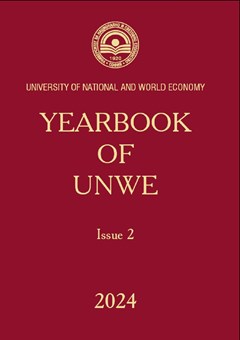EU Strategic Approaches to Combating Corruption
Author: Georgi Tasev
Abstract
Corruption remains a persistent challenge within the European Union, eroding institutional trust, economic stability, and the rule of law. In response, a comprehensive framework of strategic documents, policies, and instruments has been developed to foster transparency, accountability, and integrity across member states. This paper provides an in-depth analysis of the Union’s anti-corruption strategy, focusing on key documents, governance reforms, and legal tools that enhance enforcement mechanisms. Furthermore, the study explores disparities in national anti-corruption measures across various countries, evaluating their alignment with common standards and identifying ongoing challenges. Special attention is given to the roles of key institutions in combating cross-border corruption. The paper concludes that achieving a corruption-free Europe will require sustained collaboration among institutions, member states, and civil society, emphasizing the importance of consistent monitoring and implementation of anti-corruption frameworks.
JEL: K42, D73, H11, 052

